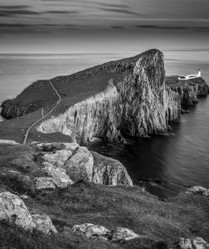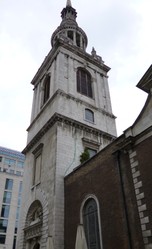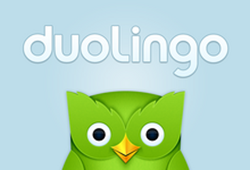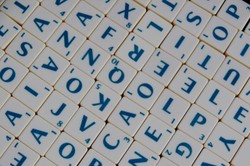The River Severn surges south from its birth place in Wales to meet the sea at the Bristol Channel.It is not widely known that the part of England west of the Severn spoke Welsh until the Eighteenth century. Furthermore, a version of Welsh was spoken in Derbyshire [North Midlands, quite hilly] until the twelfth century. There is place name evidence that Lancashire spoke a mixture of Welsh and English in the late first millennium. Ince is a Lancashire town whose name drives from the Celtic inis,meaning an island.The town had been constructed on an island in swampland.In the east of the Manchester conurbation I used to walk to work up a steep street called Penny Meadow, whose name is a combination of the English word meadow and the Welsh y pen, meaning the high [pen y meadow.] There are six living Celtic tongues, three of which are Brythonic [derived from Britain]and three Gaelic [of Irish origin.] A fourth Brythonic tongue is known,but not spoken [more later.] Of the Brythonic tongues Welsh and Cornish are spoken in Britain, but Breton is spoken in Brittany, France.
Welsh is spoken only in Wales, and is very much found most on the west and in the hills. While it is the joint official language of Wales, not everyone is keen on it. The Welsh language comes in two variants, spoken in North and South Wales respectively. The official language of Wales is the southern variety.
Cornish was a language that died out in the 1870s but was revived by enthusiasts. A few people use it in Cornwall, England's most southwesterly county, which has a small nationalist movement, its own tartan based on Scottish models and its own flag. Cornwall was a Celtic kingdom absorbed into Saxon Wessex in the tenth century. While it is in England many Cornish do not call themselves English as they like to regard themselves as having a distinct identity.
"Yan, tan, tethera...." was the way in which Cumbrian shepherds in England's most north-westerly county used to count to three.They were counting in Cumbric, a long extinct, unrecorded Brythonic language of Northern England spoken when the North was known as Hen Ogledd, the Old North, before the Angles' expansion.Several different Cumbric counting systems are known, so Cumbric must have been a fragmented system of local dialects.Sadly,no written records remain, and St Bede, writing in the eighth century did not see Cumbric as sufficiently distinct from Welsh to merit mentioning.
No written texts in Pictish, the pre-Gaelic language of much of Scotland, survive and whether it was a Celtic tongue or a relict pre-Celtic language is unknown. more recently some scholars have suggested that it was a Germanic language related to Norse. Certainly in many parts of Scotland Norn was spoken. We have thought it introduced by the Vikings, but if the Norse tongue was related to Pictish anyway the two languages would easily meld.North-Eastern Scotland, where the Picts were prevalent, never spoke Gaelic, but a version of English, so it is unlikely that Pictish was a form of Celtic.
The only relics of Norn are found on lonely Fair Isle between Orkney and Shetland where some Norse seabird names survive.







 Darkness over the Earth the skies darkened when Jesus was crucified23 days ago
Darkness over the Earth the skies darkened when Jesus was crucified23 days ago
 TheThousand Year Gardenon 11/26/2025
TheThousand Year Gardenon 11/26/2025
 Women of the Gospelson 10/11/2025
Women of the Gospelson 10/11/2025
 Religious Gardenson 08/25/2025
Religious Gardenson 08/25/2025



Comments
The Isle of Man lies between Southern Scotland, where Gaelicv as not spoken, and Eastern ,Ireland, where Gaelic had fallen out of use. The language fell out of use. In The Isle of Man.
Thank you!
It appears to me a bit confounding that there are not Gaelic speakers on the Isle of Man.
So do most Isle of Man-ers speak English even as some Isle of Man-ers speak Manx?
Manx is not spoken outside the Isle of Man, and is in that isle an enthusiast's tongue rather than a language of the ordinary people. Gaelic is not spoken in the Isle of Man at all.
Gaelic and Norse interactions appeal to me even as they arrange themselves elucidatingly, graciously, sentiently through my maternal line.
So the Isle of Man as Gaelic-Norse mix attracts me.
The second paragraph to the third subheading, Ireland and its languages, considers that "The Isle of Man, between Britain and Ireland, spoke Gaelic by the ninth century, though modern Manx, a language revived as Cornish was, is heavily influenced by Norse."
How much does one hear Manx in the Isle of Man? What other languages -- English? Gaelic? -- does one hear there? Does one hear Manx outside the Isle of Man?
That's very interesting. We don't even have paper records going back that far, so if I were to look I wouldn't find anything. In Western Europe and Transylvania churches kept these records; not in other parts of Romania though.
There was an oral tradition in my father's family [from his mother] that there was a family member who left Ireland and went to Austria, I presume in 1691,with the Wild Geese. The surname de Lacy was mentioned and we know that a number of de Lacies were present at the siege of Limerick and sailed from that city in 1691 into exile.Veronica, the family genealogy expert, tells me that information from my father's side is usually reliable.
My father's family had strong connections with the counties of Limerick and neighbouring Galway. Interestingly, Veronica has strong emotional affinities for those areas.I have a stronger affinity for the North West of Ireland, where some of my maternal ancestors originated, but I did live in North West Ireland for nearly a year.
Hi Frank, unfortunately I don't know much about my ancestry. I'm trying to learn as much about it as I can these days from an old aunt, but I only know a few things up to my great-great-grandfather, and even so, nobody remembers that guy's first name. And then on my mother's side I only know things up to my grandfather's mother. It's rather sad.
I didn't know about the Wild Geese! There is a pocket of Celtic population in northwestern Romania but these Celts settled there much earlier. There are still many Celtic crosses in that region.
Historians believed that the Welsh descended from the ancient Britons. It is only in recent years that they have realized that the English are substantially descended from the ancient Britons as well.
So you are freckled too. Are you descended from any of "The Wild Geese?" This is the nickname for the large number of Irish soldiers who fled to Europe, including the Holy Roman Empire, after being defeated by William of Orange in 1690. Many of the Irish names found in Europe come from the Wild Geese.
So the Welsh were not considered to have a Celtic background until the 19th century? Then what did historians before then say about their ancestors?
Incidentally, I'm quite freckled too :)
Just one point. Though Irish, Welsh etc are known as Insular Celtic, the British and Irish never described themselves as Celtic, which described certain tribes in Europe known to the Romans. The term Celtic was first applied to the peoples of the British Isles by historians in the nineteenth century.